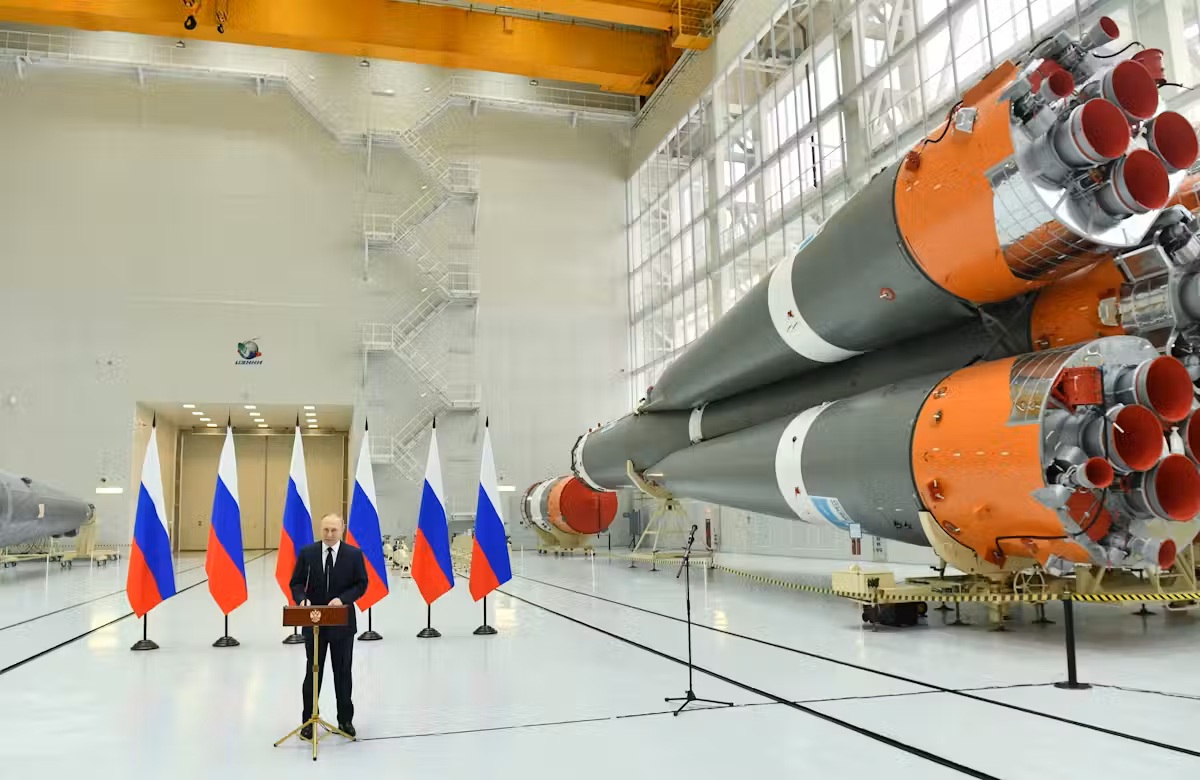
Despite the West's continued imposition of sanctions on Russia over its actions in Ukraine, the state nuclear corporation Rosatom remains unaffected. The Russian atomic giant is involved in the construction of nuclear power plants worldwide, including in countries within the Western geopolitical sphere.
By Nikola Mikovic
Energy has traditionally been one of the key drivers of Russia’s foreign policy. It is unlikely to be a mere coincidence that, back in 2014, Moscow brought Crimea – with its rich offshore gas and oil reserves – under its control, along with the coal-rich Donbas region of Eastern Ukraine. Moreover, in the early days of its 2014 invasion of Ukraine, Russia occupied the Zaporizhzhia nuclear plant – the largest facility of its kind in Europe.
Rosatom now operates the plant, and the West essentially turns a blind eye, allegedly wary of provoking a nuclear incident or disrupting global atomic energy cooperation. The European Union imposes sanctions on Moscow almost monthly and seeks to end its dependence on Russian energy, yet it has never sanctioned Rosatom.
In 2024, the EU imported approximately €700 million ($819 million) in Russian uranium products out of a total of €22 billion ($25.75 billion) in Russian energy imports. In November, Rosatom is scheduled to begin construction of the Paks II nuclear power plant in the EU member state of Hungary. At the same time, NATO member Turkey is already constructing the country’s first nuclear power plant in Akkuyu, located on the Mediterranean coast.
In mid-September, Serbian authorities and Rosatom began talks on the construction project for a nuclear power plant in the Balkan nation, which has been an EU candidate since 2012. Given that the Southeast European country is unlikely to join the European Union in the foreseeable future, if at all, it should not be ruled out that Rosatom will get the green light to build the first nuclear power plant in Serbia. Belgrade has already signed nuclear cooperation agreements with France, which means Rosatom will face serious competition in the Balkan state.
It also encounters strong rivals in Armenia, where the company is working to extend the operating life of the Metsamor nuclear plant. Despite Yerevan’s attempt to leave Russia’s geopolitical orbit and develop closer ties with the West, Armenian Prime Minister Nikol Pashinyan’s recent visit to Moscow, where he attended the World Atomic Energy Week forum, clearly suggests that the South Caucasus nations may continue to do business with Rosatom.
Russia’s state nuclear corporation has repeatedly stressed that it is interested in building more nuclear facilities in the landlocked country. However, the United States also aims to deepen nuclear cooperation with Armenia, which may lead to a geopolitical battle between Moscow and Washington over the construction of Armenia’s second nuclear power plant.
Or at least that’s how it may appear on the surface. In reality, they are more likely to strike behind-the-scenes deals. For instance, if Moscow continues to disregard Armenia's deepening ties with the West, Washington may, in exchange, refrain from interfering with Rosatom’s business in the country.
Similar arrangements seem to have already been made in Central Asia, where Rosatom plays a significant role in ensuring the region’s nuclear energy development, even as local actors cultivate closer ties with the United States and the European Union. The authorities in Kazakhstan have recently selected Rosatom to lead the consortium for building its first nuclear power plant in the largest Central Asian state, while in neighbouring Uzbekistan, Rosatom is constructing an integrated atomic power plant in the Jizzakh region.
Russia’s nuclear giant is active not only in the post-Soviet space. In Egypt, construction is underway on the El Dabaa Nuclear Power Plant, which will feature four reactors. As a result of a $25 billion deal signed on September 24 by Rosatom chief Alexei Likhachev and Iran’s top nuclear official, Mohammad Eslami, Russia’s energy giant will also build four nuclear power plants in the Islamic Republic. But is there any guarantee that Iran’s archenemy, Israel, will not attempt to prevent the construction?
In Myanmar, where the civil war has been ongoing since 2021, the authorities are working closely with Rosatom to establish a small nuclear power plant. War is war, but business is business. The coming years will reveal whether the same principle can be applied to Iran.
In the meantime, Rosatom could begin construction of two 2,000-megawatt nuclear reactors in Nigeria — a uranium-rich African country whose coup leaders sought assistance from the Russian mercenary group Wagner in 2023. The corporation is expected to do a lucrative business in another African nation, Ethiopia, where it plans to build not only a nuclear power plant but also a Centre for Nuclear Science and Technology.
All this is happening while US President Donald Trump threatens to impose severe tariffs on countries that purchase Russian energy, and while the West continues to impose sanctions on various Russian individuals and companies. Yet Rosatom remains an exception.
It is now fair to say that the late US Senator John McCain was not entirely correct when he described Russia – heavily dependent on energy exports – as “a gas station masquerading as a country.” Russia, specifically its state nuclear corporation, is also a significant contractor for atomic power plants. But whose interests does Rosatom really serve?






